Survival doesn’t have to be stripped-down and joyless.

Indulgence gets a bad reputation, especially when it’s tied to anything soft, pretty, or quiet. You hear it all the time—self-care framed as a treat, a reward, a break from “real” life. But what if the things that feel luxurious are actually what keep you grounded? When the world runs on burnout, overstimulation, and constant discomfort, building little oases of ease isn’t excess. It’s protection.
There’s nothing frivolous about soft towels, cold drinks, or clean sheets. Comfort is a strategy—one that helps you recover, focus, and face whatever’s next. These aren’t guilty pleasures. They’re tools. Whether it’s a heated blanket or noise-canceling headphones, some of the best so-called “indulgences” are the ones that make everything else more manageable.
1. Soft lighting cuts down on stress you didn’t even know you were carrying.
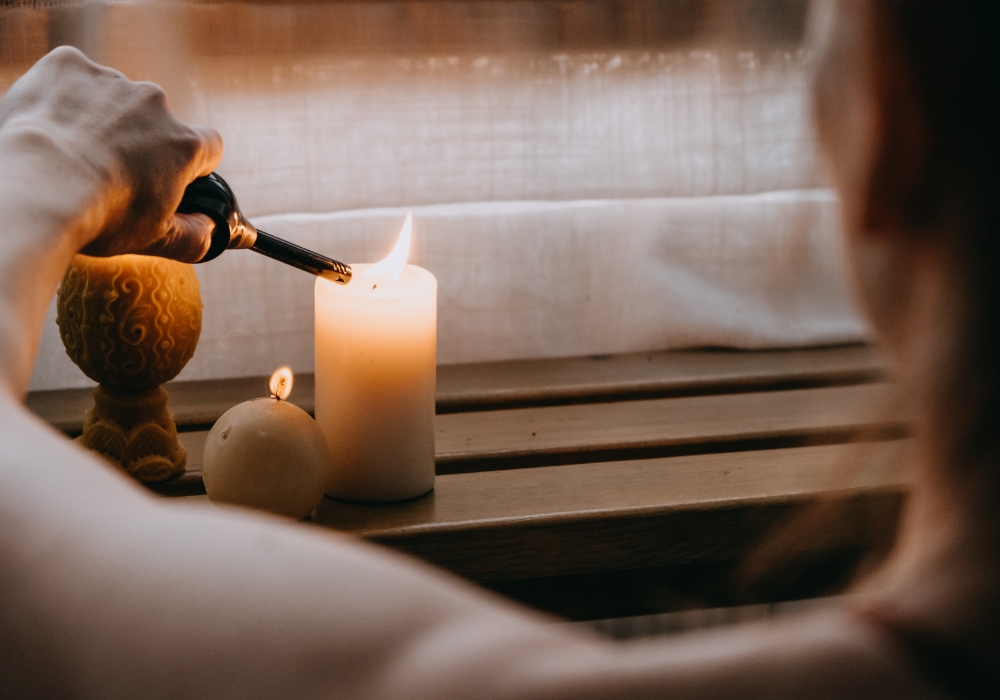
Overhead lighting doesn’t just flatten everything—it puts your nervous system on edge. Research by Michio Yokoyama and others in PubMed Central found that exposure to bright, artificial light—particularly cool-toned LEDs—can increase physiological arousal and delay the body’s natural wind-down process. That might be fine in a grocery store, but it’s overstimulating at home. Soft lighting changes the whole tone of your space. It tells your brain: you’re safe, you can stop bracing.
Warm lamps, string lights, and dimmers don’t just look cozy—they create a low-pressure environment. That kind of visual gentleness adds up, especially if you’re easily overwhelmed or dealing with decision fatigue. Swapping harsh lights for soft ones won’t solve your problems, but it might make them easier to face. The goal isn’t to create a Pinterest-perfect space. It’s to create one that lets your body and brain breathe.
2. A cozy robe signals your body to stop hustling and start decompressing.
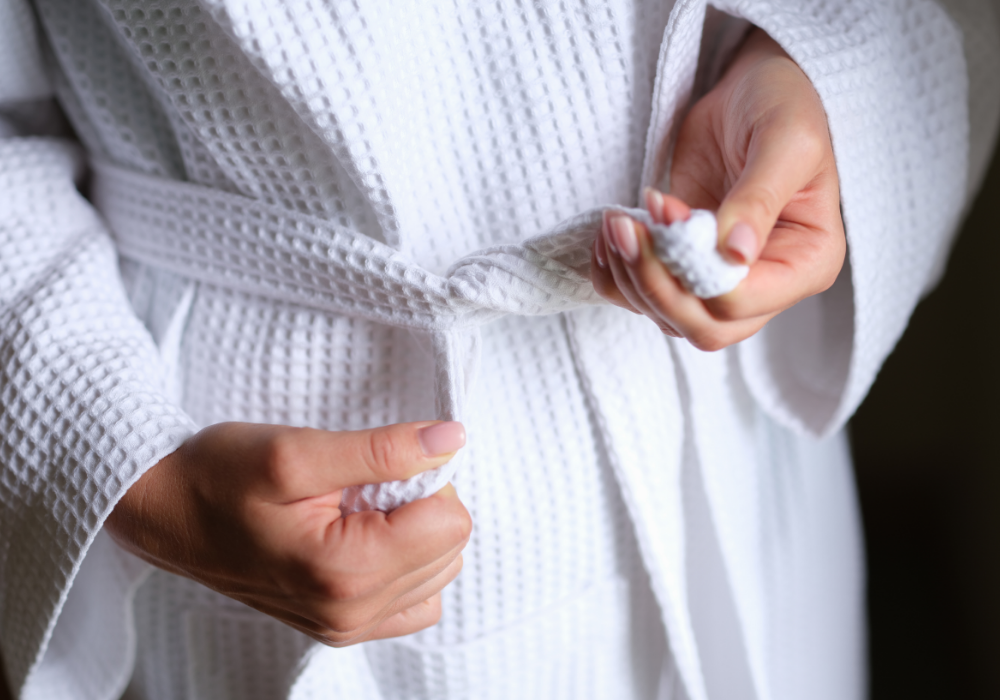
Rituals don’t need to be complicated. Sometimes, putting on a robe is enough to switch your brain out of survival mode. It’s a signal that the day is done, the pace is slowing, and you don’t owe anyone anything for the next few hours. Dr. Linda Nykin writes for Pacha Integrative Medicine that physical comfort, like soft fabrics and warm layers, can help regulate the nervous system and ease the transition out of stress.
Robes get written off as lazy, excessive, or bougie, but they’re really just wearable softness. And if wearing one makes you feel calmer, more rested, or even slightly more human after a long day, then it’s doing more than most productivity hacks. You don’t need to “deserve” comfort. A soft layer between you and the world can be enough to start resetting the pressure.
3. Fancy drinks—even non-alcoholic ones—make hydration feel like a treat.

Plain water’s great, but sometimes your brain craves novelty. Sparkling water, fresh citrus, a pretty glass—those little extras make hydration feel intentional. Writers at Abbott note that even carbonated water helps keep you hydrated, making it a smart choice for those who struggle to drink enough plain water throughout the day.
There’s nothing trivial about making hydration easier. If flavor, fizz, or a slice of cucumber tricks you into taking better care of your body, that’s a win. These drinks aren’t about impressing guests or “treating yourself” in a social media kind of way. They’re about upgrading a need into something enjoyable. And that shift can change the way you approach care altogether.
4. Heated blankets calm your body faster than willpower ever could.
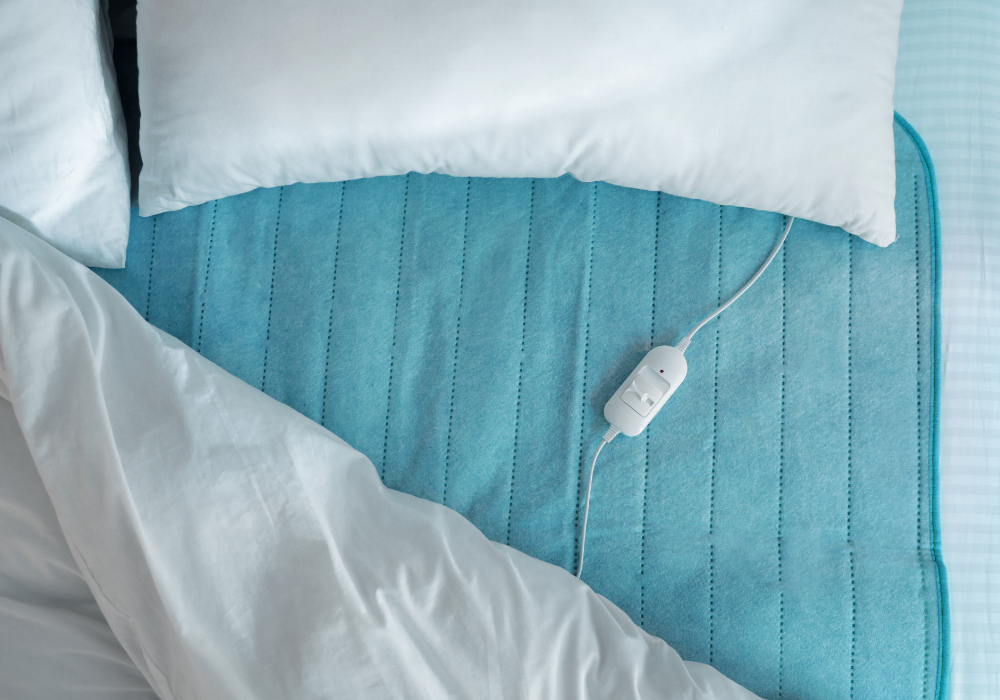
You can try to think your way into relaxation—but your nervous system responds better to sensation. Warmth slows your heart rate, eases muscle tension, and helps you sleep. A heated blanket gives you that comfort on demand, without needing to take a hot shower or reheat a rice sock every hour.
They’re especially helpful if you live with chronic pain, sensory sensitivity, or anxiety. That steady heat works like a weighted blanket, except it adds softness and warmth instead of pressure. The moment you wrap yourself up, your body starts dialing things down. It’s not indulgent—it’s one of the simplest ways to shift your internal state without effort.
5. Noise-canceling headphones build a bubble when the world gets too loud.
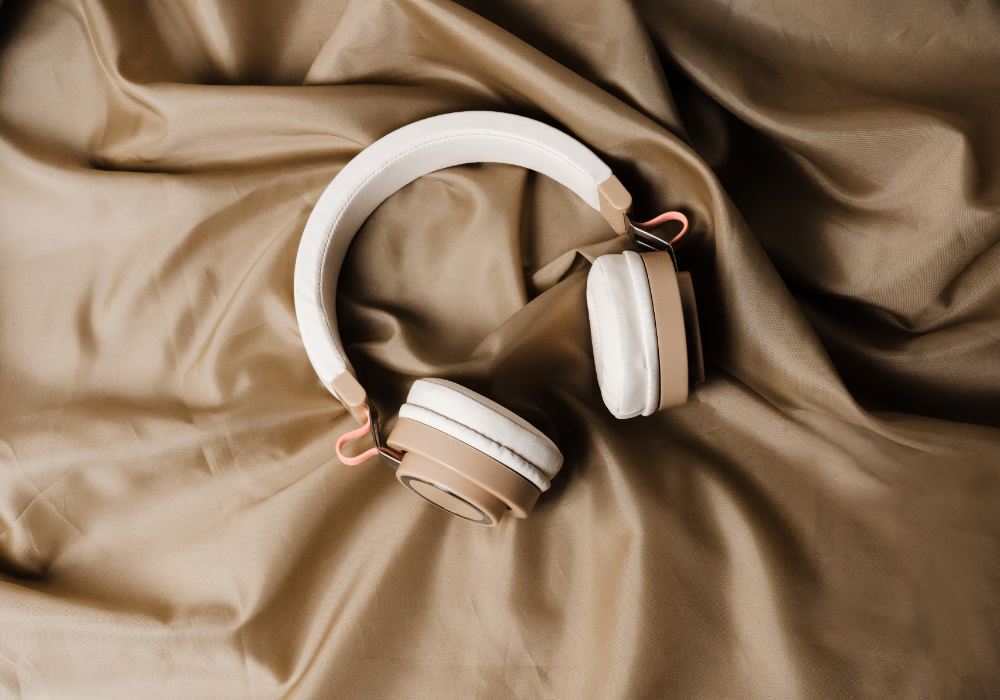
You don’t realize how much background noise you’re managing until it disappears. Traffic, buzzing lights, loud neighbors, the constant hum of machines—all of it adds to your sensory load. Noise-canceling headphones shrink that down. They give your brain space to focus, rest, or just exist without the extra static.
Whether you use them to play calming sounds or to block everything out entirely, they act like a mute button for your nervous system. That’s not laziness or avoidance—it’s strategy. Creating silence can help you reset faster and move through your day with more capacity. They don’t just block sound; they make room for quiet where it’s desperately needed.
6. High-quality bedding turns sleep into an actual recovery tool.
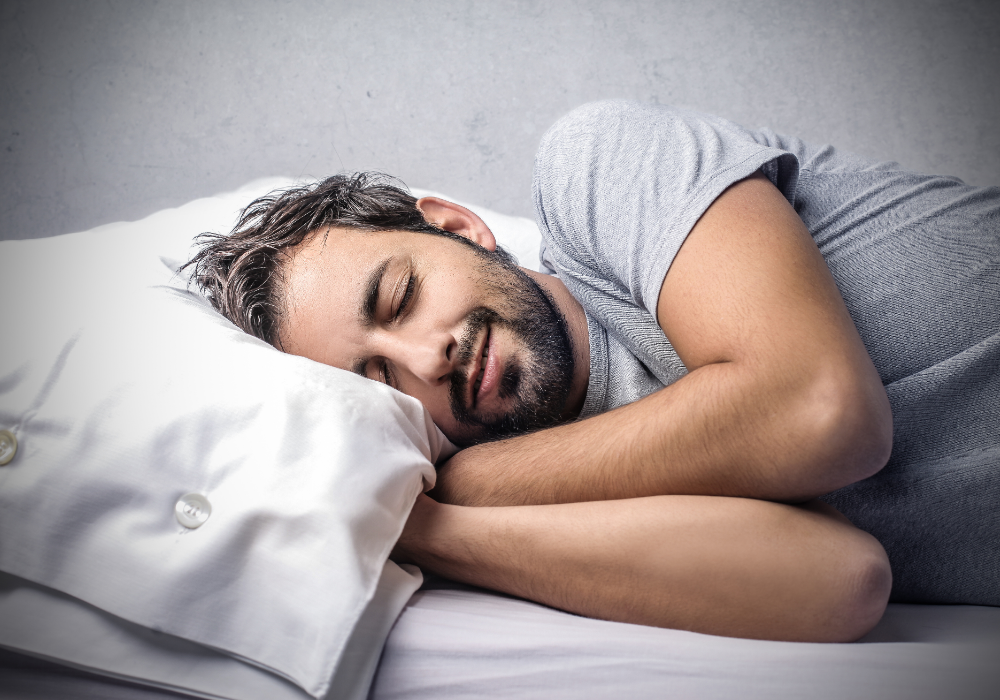
Sleep isn’t just about how long you’re out—it’s about how well your body rests while you’re there. Scratchy sheets, sagging pillows, and synthetic blankets don’t help. Investing in bedding that feels good can improve your sleep quality more than any melatonin gummy ever will.
Natural fibers like cotton, linen, or bamboo help regulate temperature. Supportive pillows reduce neck pain. Even something as small as a better pillowcase can shift your whole night. When your body doesn’t have to fight discomfort, it can do what sleep is supposed to do: repair, reset, and restore. The difference isn’t just physical—it changes how you feel the next day.
7. A really good pen can make even your worst days feel more in control.

It sounds dramatic, but the pen you use genuinely affects your mindset. A smooth, inky, effortless pen changes how it feels to write things down—whether it’s a to-do list or a spiral of anxious thoughts. It makes the act tactile and satisfying, instead of scratchy and annoying. And when life feels chaotic, that tiny bit of fluid control can ground you more than you’d expect.
It’s not about stationery obsession or productivity aesthetics. It’s about having tools that don’t make life harder. When something as basic as writing becomes easier, your brain gets a micro-dose of relief. That small act of ease can ripple out into other areas: planning, organizing, even expressing emotion. If a pen helps you feel capable again, that’s not indulgent—it’s medicine in disguise.
8. An electric kettle turns basic comfort into a five-minute ritual.
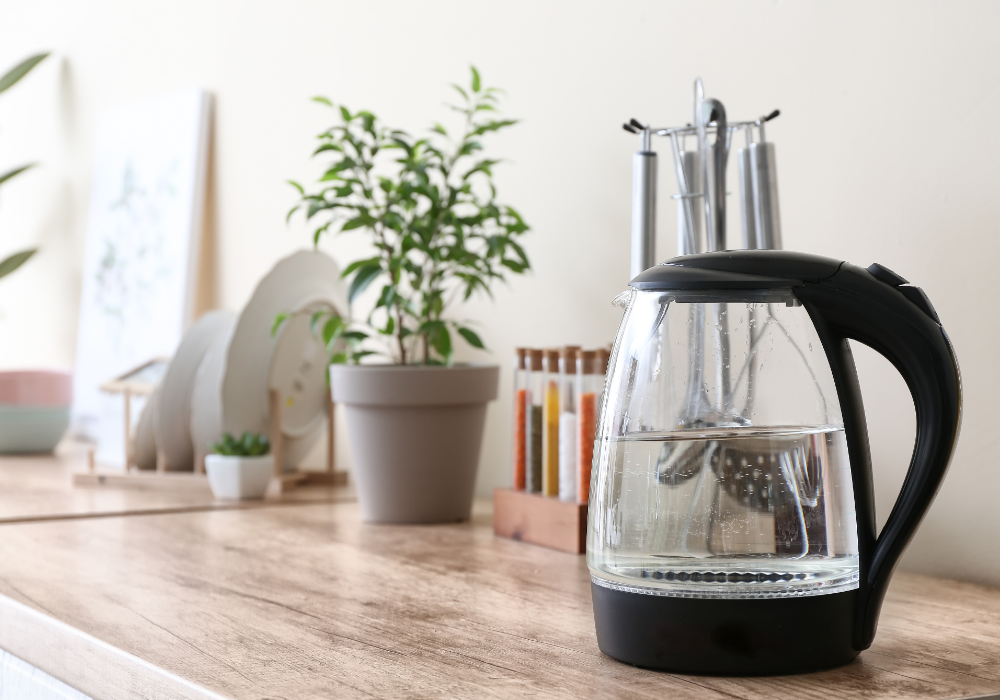
You don’t need a full tea ceremony to benefit from ritual. Just the act of boiling water for something warm—tea, broth, cocoa—can feel like care. An electric kettle makes that comfort ridiculously easy. It’s faster, quieter, and safer than the stove, and once it becomes part of your routine, you’ll wonder how you lived without it.
It’s not just for tea drinkers. Whether you’re sipping lemon water, steeping herbal blends, or mixing up an instant soup, that five-minute pause is a reset button. The kettle hums, you wait, you breathe. It’s a built-in break in the day, and it doesn’t ask much of you. That kind of consistency can make you feel held when everything else feels unstable.
9. Soft clothes change your whole nervous system without you noticing.

There’s a reason we reach for the same sweatshirt over and over—it knows how to treat our skin. Tight, scratchy, restrictive clothes send low-level stress signals to your body all day. Soft clothes do the opposite. They relax your muscles, lower your guard, and let you focus on something other than discomfort.
That’s not laziness—it’s regulation. Choosing softness, stretch, and warmth isn’t giving up; it’s choosing not to fight unnecessary battles. When your body feels safe in what it’s wearing, it frees up brainpower and emotional space. You’re not “slobbing out” when you change into something gentle—you’re tuning into what your body’s been asking for all day.
10. Pre-chopped veggies or frozen meals aren’t shortcuts—they’re survival tools.
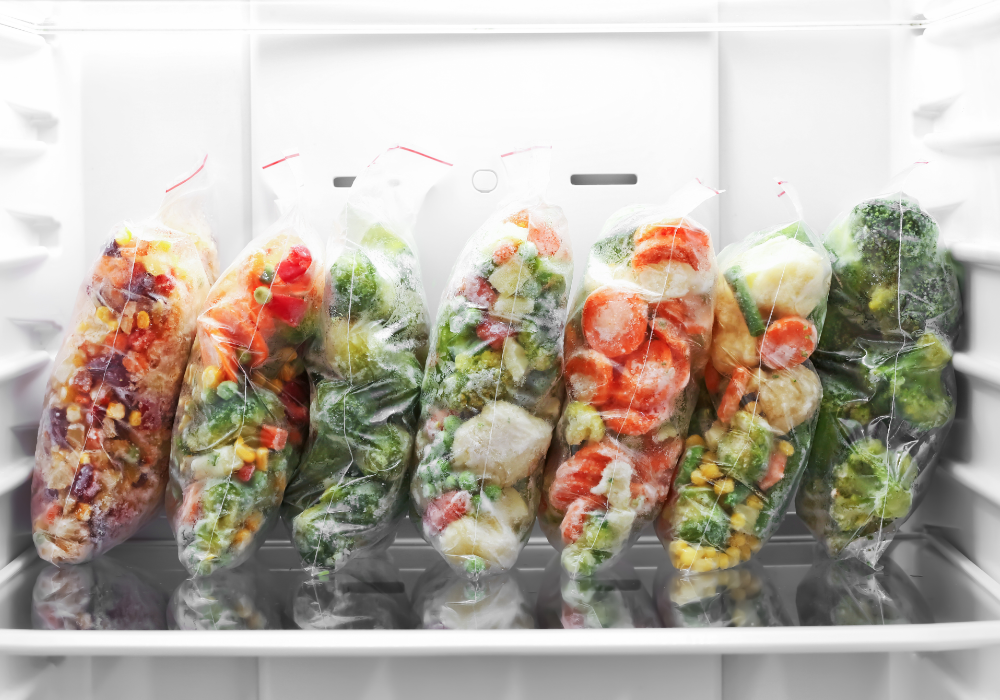
Cooking from scratch is lovely in theory, but it’s not always realistic. Whether you’re drained, sick, overwhelmed, or just human, having food options that don’t require 45 minutes and a sink full of dishes can mean the difference between nourishment and skipping meals. Pre-chopped veggies, frozen dumplings, or pre-made rice are not cheating. They’re planning for reality.
These tools help you eat something decent even on days when you can’t bring yourself to cook. That’s not laziness—it’s sustainability. You deserve to eat well even when you’re running on fumes. And if a shortcut gets real food into your body, that’s not indulgence. That’s strategy. That’s care.
11. Streaming your comfort show isn’t wasting time—it’s giving your brain a break.

There’s a reason you keep rewatching the same show when things get hard. Familiar media provides structure, predictability, and a known emotional arc. It helps your brain downshift without the pressure of new information. That kind of passive calm is rare in a world full of demands, and yes, it actually helps.
Comfort shows act like white noise for your thoughts. They let your nervous system idle. You don’t have to track plot twists or brace for impact. You know what’s coming—and that’s the point. In moments when nothing else feels stable, one old sitcom or cozy drama can make the difference between spiraling and staying grounded.
12. A fragrance you love can shift your mood faster than a meditation app.
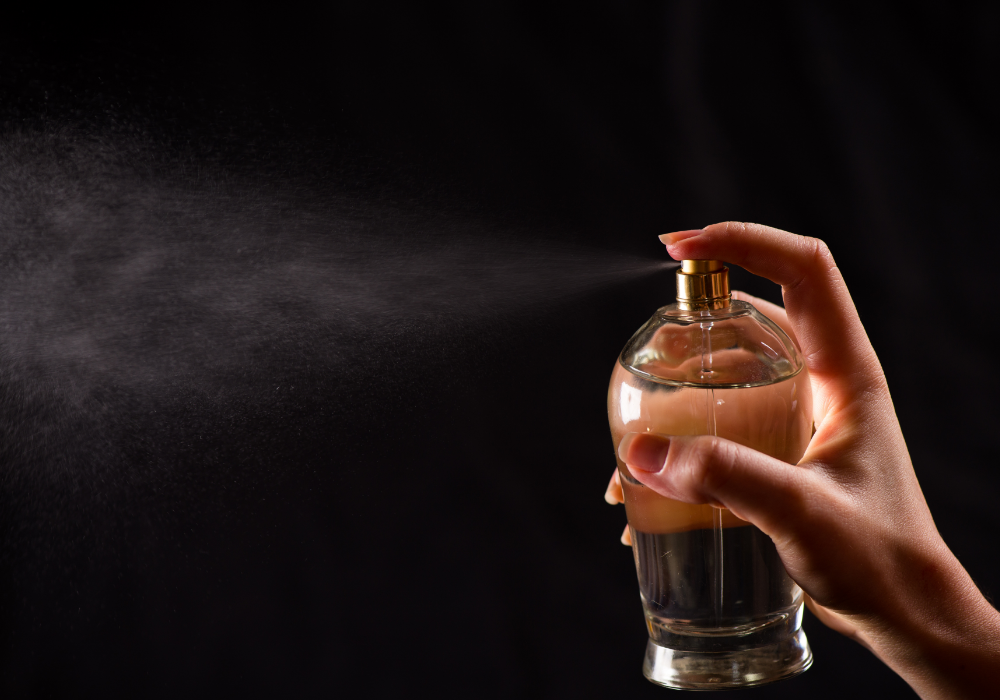
Smell is one of the fastest ways to change how you feel. A scent you associate with warmth, clarity, or calm can instantly shift your body’s response. Whether it’s a favorite candle, a linen spray, or essential oils, the right fragrance is a shortcut to a whole-body reset.
It doesn’t need to be fancy. Just familiar and comforting. Smell bypasses thought and hits the nervous system directly. That’s why one whiff of lavender or lemon can feel like a sigh of relief. You’re not indulging in fluff—you’re using your biology to your advantage. Scent is a tool. Use it often.